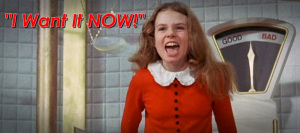I had intended to write an article about the problem with permissive parenting in the context of current trends in Sweden, but I realized, after reading a particularly smug article in the Telegraph that what was being said was equally applicable to this country.
There seems to be a general drift happening in Europe towards a laissez-faire style of parenting, encouraged by an erroneous belief that children will, if only given room to develop, intuitively find their way of being in the world. It puts me in mind of the disastrous educational fads of the 1960s. I’m not entirely sure where this paradigm shift has come from but it’s a dangerous one. Discipline has become something which is increasingly viewed as counterproductive or inhibitive. In my opinion this is not necessarily a good thing. It feels important to remember that children are deeply loved dependents and whilst they are physically formed this is only half the process. They look to us to help them fill the gaps that remain. To relinquish that responsibility in the cause of misguided liberalism is to do them a great disservice. This is not to say I advocate a dictatorial approach to child rearing. Didacticism and dogmatism should be equally condemned. Children must be allowed to use their voices. They must see that their notions of justice and fairness, which they are beginning to form and internalise, line up with what is required and expected of them. However, it must also be recognised that there are as many occasions when ‘it is bedtime, please go to bed’ or ‘please brush your teeth’ need not be an exercise in the Socratic Method. I am in agreement with Ms Woods when she asserts that saying ‘no’ (perhaps with an explanation attached) to a child is not the same as beating them.
Every desire does not need to be satisfied. A childhood without frustration or disappointment is simply not possible and bending to every caprice and whim of your child, however well intentioned, has no good ending. Figures in Sweden have shown (and those here) that such an approach is leading to a decline in empathy, resilience and self-discipline in the school system. And who can blame these children? After all, what use does a person who is given everything (and asked for nothing in return) have for these qualities of character? This is not a trivial thing but a severe handicap that affects the entire span of a life. As this child passes into adulthood what recourse does he or she have when they meet with disappointment? What skills do they have to manage adversity, as we all must, and deal with the pain of failure? When are they supposed to learn that the things that were given to them in childhood must be earned in adulthood? Such knowledge is not obtained all at once. It is the accretion of gentle instruction laid down like layers of sand in sedimentary rock.
